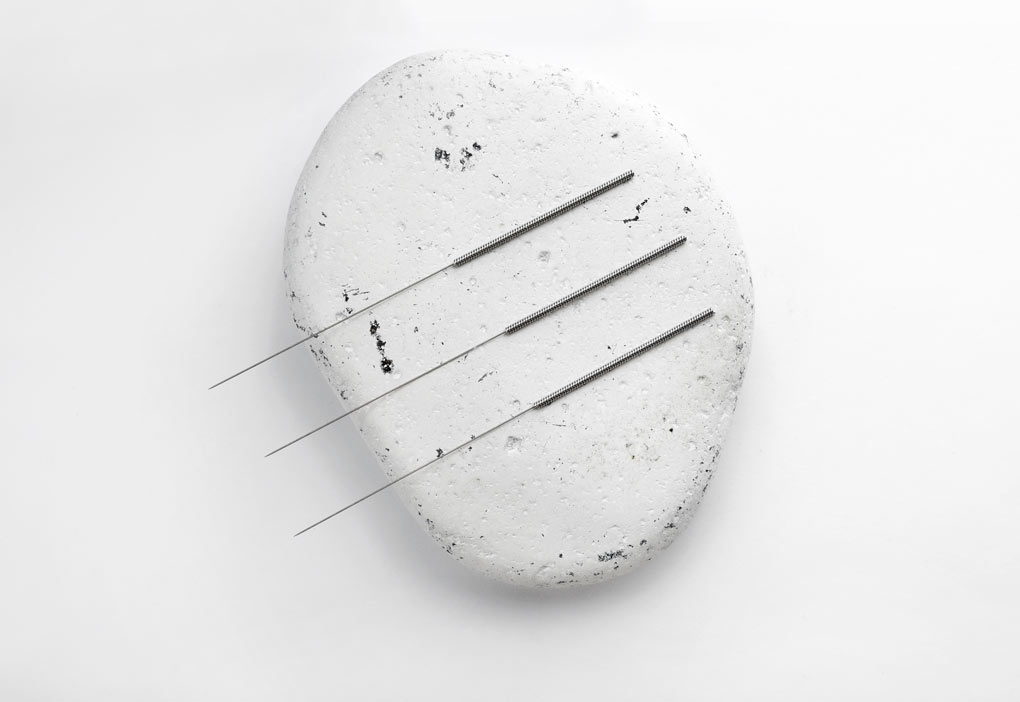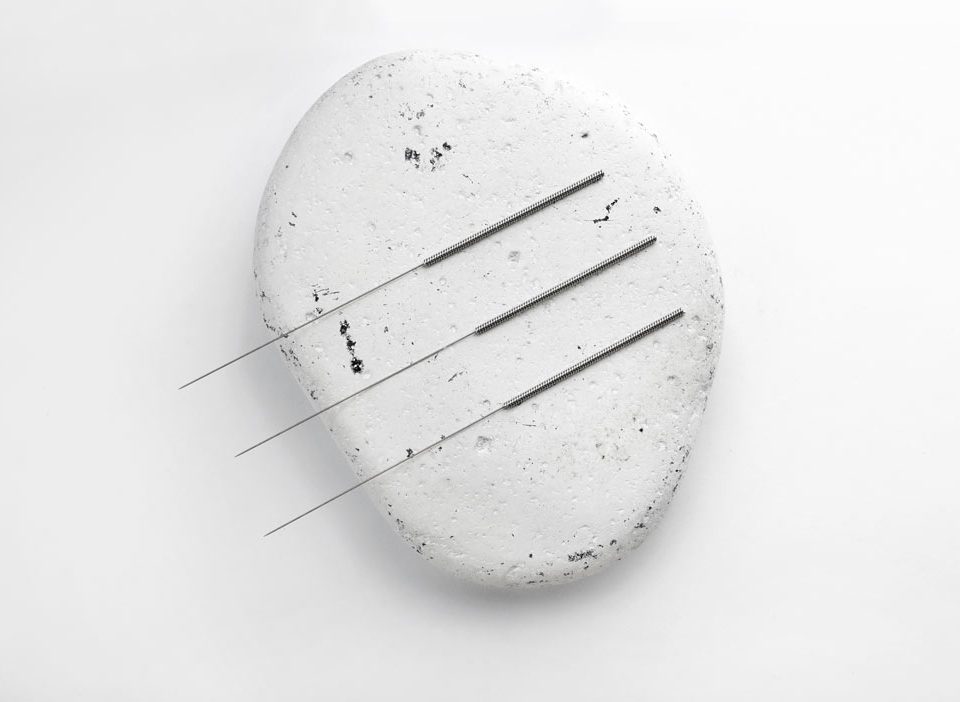Acupuncture and herbs for Stress and anxiety

Acupuncture for Anxiety and Depression
June 22, 2023
Migraine headache and can Acupuncture help
February 26, 2024“The number one root of all illness, as we know, is stress.” – Marianne Williamson
Stress is part of life, and our body’s reaction to acute stress is very important for our survival and health, the problem arises when we are under chronic stress which causes a dysregulation of our HPA axis.
The hypothalamic-pituitary-adrenal (HPA) axis is a crucial neuroendocrine system for maintaining homeostasis (the self-regulating process by which an organism tends to maintain stability while adjusting to conditions that are best for its survival) and managing allostasis (the ability to achieve stability through change) during stressful conditions (mental and physical stress). It’s our key system of surveillance, protection, adaptation, and resilience.
The journey of stress response starts at the amygdala in our brain, its function is like an inner and outer surveillance system, by detecting and getting triggered by danger/change from both inside and outside of the body or even emotional memories (which are stored in the hippocampus) and report it back to the brain. For example an outer danger such as a truck coming towards you or inner danger such as stomach pain.
Once the amygdala is triggered, it will send a message to the hypothalamus to release Corticotropin-releasing hormone (CRH), which triggers the pituitary gland to release Adrenocorticotropic hormone (ACTH), this hormone triggers the immediate release of Adrenaline and Nor-Adrenaline from the brain, in addition, ACTH triggers Adrenal gland to release more Adrenaline and nor-adrenaline from medulla and Cortisol from adrenal cortex.
Adrenaline helps with the “fight and flight” response by increasing heart rate, an increase in blood pressure ( via the release of Aldosterone), increase in breathing rate and blood sugar level.
Cortisol acts on the liver, muscles, adipose tissue, and pancreas, it will trigger the liver to increase gluconeogenesis ( production of glucose from glycogen) to increase glucose (sugar) levels in the blood for energy production.
Under normal circumstances, once the stressful situation is over, our body will recover from an acute spike of Adrenaline and cortisol and will get back to homeostasis, but if our body is under long-term stress and does not get the opportunity to recover, it causes a cascade of biological changes which will have a negative impact in our body.
Symptoms of HPA dysregulations include:
- Trouble falling asleep; waking in the night, not feeling rested when you wake
- Cravings for caffeine, sugar, carbs, or fat
- Fatigue around 3-4 most afternoons, cravings at this time
- Slow metabolism; weight gain, especially stomach area, difficulty losing weight
- Chronic colds, respiratory, or sinus infections; recurrence of old infections, i.e. Epstein Barr Virus or herpes
- Irregular or poor digestion
- Hormonal imbalances of any kind Autoimmune disease, i.e. Hashimoto’s
- Anxiety; depression; depression when you wake in the morning; low motivation during the day
- Decreased memory or concentration, making mistakes at work
- Blood sugar problems including low or high blood sugar; metabolic syndrome; insulin resistance or diabetes
The mechanism of Chronic HPA activation and long-term cortisol release and its effect on the body include:
- Chronic release of cortisol will increase fibrinogen which causes blood clotting.
- It will increase systematic inflammation by producing inflammatory cytokines
- The production of inflammatory cytokines will reduce immunity and the ability to fight off infections.
- It will increase blood glucose levels and as a result of this, it will decrease cell’s insulin sensitivity causing insulin resistance in our cells.
- Due to insulin resistance, the cells are starving for glucose, as a result, it will increase carbohydrate craving and weight gain.
- An increased intake of salt/fat/carbohydrate causes gut dysbiosis (imbalance of gut microbes) which causes intestinal inflammation, problems with absorption and elimination
- Chronic high levels of cortisol will reduce blood circulation to the gut, causing ischemic damage to the gut reducing mucosal lining IgA, and a reduction of gut microbiota.
- Long-term elevated levels of cortisol cause an increase in abdominal fat, this fat will reduce leptin ( satiety hormone) levels and increase Ghrelin (hunger hormone) which causes more fat/sugar/salt cravings.
- It will negatively impact our thyroid by reducing Thyroid stimulating hormone (TSH) and reducing the conversion of inactive thyroid (T4) to the active hormone (T3).
- Long-term high Cortisol also suppresses GnRH (gonadotropin-releasing hormone) and LH (Luteinizing Hormone) as a result it will cause anovulation and lower sex hormones, Premature ovarian failure, corpus luteal dysfunction, ovarian failure, implantation failure, repeated pregnancy loss, premature labor and delayed labor.
- Cortisol uses DHEA and DHEA-S( produced by the adrenal gland which is converted to androgen and estrogen) as a buffer during stress response, Long-term term cortisol production will lower DHEA and DHEA-S levels causing lower levels of androgen and estrogen.
- Due to the negative impact on androgen, it will reduce libido
- Lower dopamine production as a result causes anxiety and depression
- It will decrease bone density by stimulating the adrenal cortex to release aldosterone which causes mineral release into the bloodstream
- It will elevate blood pressure due to the high mineral content in the blood
- Basal cortisol elevation causes damage to the hippocampus and impairs hippocampus-dependent learning and memory. Chronic high cortisol causes functional atrophy of the hypothalamic-pituitary-adrenal axis (HPA), the hippocampus, the amygdala, and the frontal lobe in the brain
- High serum cortisol levels will reduce melatonin causing insomnia and circadian rhythm dysregulation
The effect of long-term stress on the body is measured via testing for allostatic load. Allostatic load is the burden of chronic stress on the body which can be measured by the following (please consult with your medical doctor regarding these tests):
- Urine/salivary cortisol level
- DHEA-S
- Waist/Hip ratio
- Albumin
- Hemoglobin
- Fibrinogen
- CRP/ESR
- Systolic/Diastolic blood pressure ration
- Thyroid panel
- CBC with differential
- Metabolic panel
- ANA
Treatments:
- Stress management: Exercise, yoga, meditation, setting boundaries and prioritizing
- Resetting circadian rhythm and improving sleep hygiene and herbal supplements to improve sleep quality.
- Improve gut health by taking high-quality probiotics
- Psychotherapy to deal with trauma
- Better eating habits and nutritional support to reduce fat/sugar/salt intake
- Taking appropriate supplements/herbs to regulate the HPA axis
- Acupuncture
How does Acupuncture help with Stress and HPA axis dysregulation:
In TCM (Traditional Chinese Medicine), acupuncture is used to restore the balance of yin and yang, in western terms this can be explained that acupuncture modulates the balance between the sympathetic nervous system and the para-sympathetic nervous system.
Studies have shown that Acupuncture can stimulate the production of the neurotransmitter Enkephalin ( which reduces substance P release from the spinal cord and inhibits afferent pain fibers). Another study has shown Acupuncture and electro-acupuncture can release other endogenous opioid peptides such as Beta endorphins, acupuncture seems to have a modulating effect on Beta-endorphin levels, and another study has shown that in turn Beta endorphins will inhibit the ACTH release and lower cortisol levels. The direct relationship between acupuncture and cortisol has been tested and in one study it was shown after four weeks of acupuncture treatments there was a decrease in salivatory cortisol levels. One study showed an increased level of cortisol 15 min and 45 min after acupuncture, while another study showed there was a decrease in morning salivary cortisol level after the 10th acupuncture session. It seems acupuncture at first causes a spike in cortisol levels but with more sessions, it will reduce cortisol levels. Another study measured the patient-reported measurement of acupuncture and stress and it showed patients who received acupuncture reported lower levels of stress.
Acupuncture can be a safe and effective modality to reduce anxiety and stress levels in general, but also anxiety associated with infertility, postpartum, and anxiety associated with menopause.
Herbal medicine for Stress and Anxiety
Herbs have been used in different traditional medicines to treat stress and HPA axis dysregulation. Adaptogens are commonly used to treat HPA axis dysregulation ( adaptogens should not be used during pregnancy).
- Ashwagandha: has an anxiolytic effect via GABA mimic agent.
- Reishi mushroom: contains phenols and flavonoids which help with anxiety
- Rhodiola: reduces monoamine oxidase (MOA), and as a result, increases serotonin and Beta-endorphin levels
- Ginseng: Improves stress response, energy level, stamina, memory, and mental performance
- Holy basil: improves energy, reduces fatigue, and elevates mood, a study showed 8 weeks of supplementation of Holy basil may reduce objective and subjective measures of stress, and improve subjective measures of sleep quality.
- Maca: it reduces psychological symptoms, including anxiety and depression, and lowers measures of sexual dysfunction in postmenopausal women independent of estrogenic and androgenic activity.
- Study show a traditional Chinese herbal formula SNSF ( Chai hu, Shan yao, Zhi shi, Gan cao), exerts anti-depressant and antianxiety effects by regulating the signaling pathway of 5-hydroxytryptamine, Dopamine, GABA, and neuroactive ligand-receptor interaction.
- A review of 45 common herbal antidepressant formulas showed the antidepressant effects of herbal medicine might involve multiple signaling pathways including the Monoamine neurotransmitter system, GABAergic system, L-glutamate signaling pathway, HPA axis regulation, regulation of BDNF (brain-derived neurotrophic pathway) which is important for learning and memory, anti-inflammatory, anti-oxidant, affecting microbiota which is important in serotonin production in the gut.
If you suffer from Anxiety, chronic stress, and insomnia due to stress, you might want to consider Acupuncture, and herbal medicine instead and or in addition to your allopathic care.





